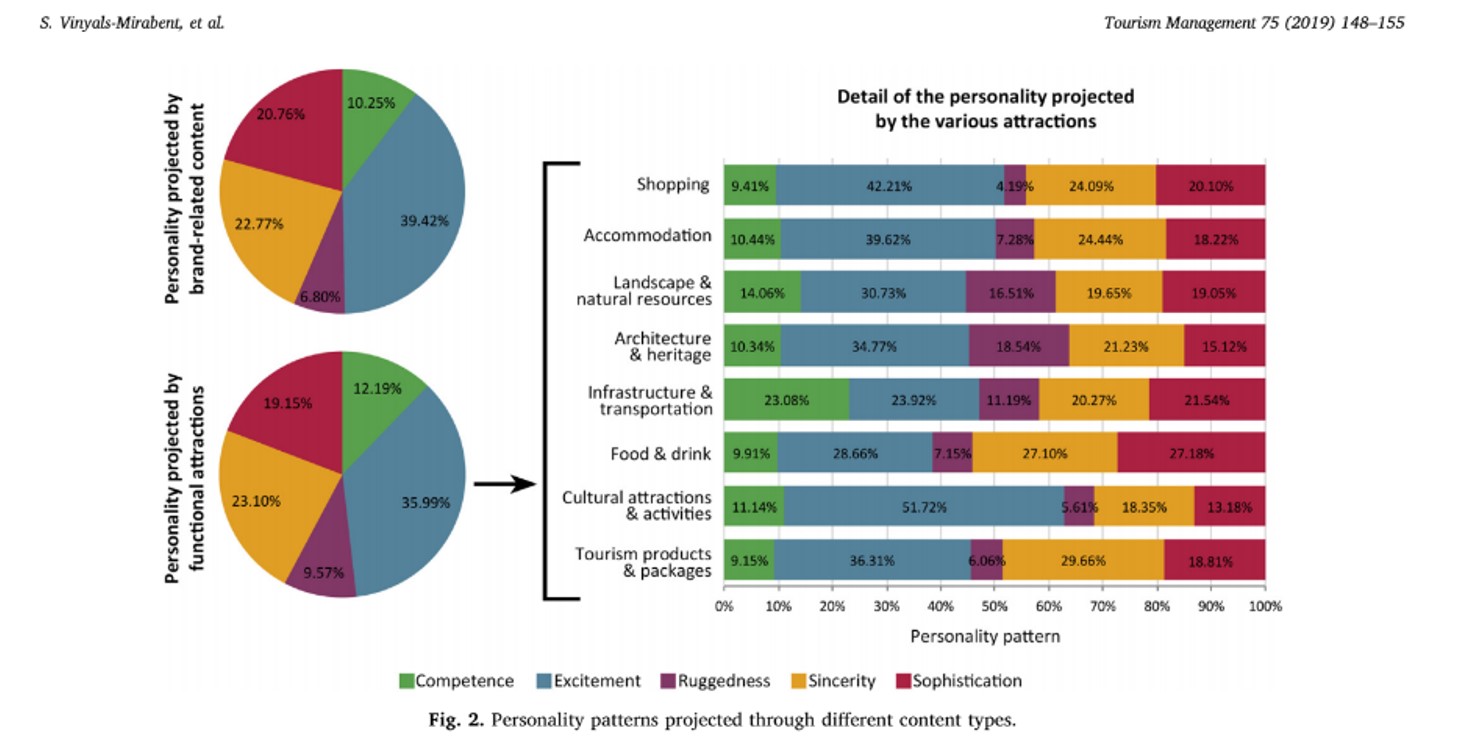Building brand personality through functional associations of tourist attractors
A study has analysed twelve official European websites of urban destinations and the results have been published in May in the journal Tourism Management. Its authors are Sara Vinyals-Mirabent and José Fernández-Cavia, members of the Communication, Advertising and Society Research Group of the Department of Communication, with the participation of Mihalis Kavaratzis, a researcher at the University of Leicester.

When the concept of brand is applied to cities, reference is made to an intangible value that is built on the basis of the products offered by the destination: tourism, culture, entertainment, etc. These intangibles are involved in the choice of a tourist destination. Official bodies work on the brand of their city developing products, services or messages that adapt to what people look for when choosing a particular destination.
An article published in Tourism Management, the leading impact journal in the field of hotel management and tourism, provides new insights into how city brand managers can project and promote a strong and coherent personality of a tourist destination through its communication activities, specifically through web communication.
The study was led by Sara Vinyals-Mirabent as first author, with José Fernández-Cavia as co-author, both members of the Communication, Advertising and Society (CAS) Research Group at UPF’s Department of Communication, and it also involved Mihalis Kavaratzis, a researcher at the University of Leicester (UK). The authors analysed the content of twelve official European websites of urban destinations.
Research comes under the umbrella of the project: “El turista a la Xarxa: hàbits informatius i opció de destinació” ITORISTA” (CSO2014-59896-P), of which José Fernández-Cavia is the principal investigator and is supported by the Spanish Ministry of Economy and Competitiveness.
We project a brand personality about the sites
When we choose a travel destination, we do not do so solely for its museums or architecture but we attribute a personality to the destinations, a character, which plays a very important role in our process of choosing the destination. This is called brand personality. “An example of this personality would be the fact that we recognize Barcelona as being a more modern and lively city than Paris, a city noted for its sophistication”, explains Sara Vinyals-Mirabent, first author of the work.
Destinations’ projected personality should not be studied independently from the functional dimension of brand image
There is great potential for using the strengths of a destination or its attractors to better project the desired personality traits, which leads to a better fit between its personality and the overall projected image. For those responsible for destinations it is very important to convey this character strategically. Hence, to communicate city brands attractively, it is not enough to think about what to say but care must also be taken as to how to say it.
The association of different attractors, such as landscape, architecture and gastronomy, influence the projection of different brand personalities
Different types of information about a destination promote different personality traits. Projected brand personality is not an isolated type of association; it is conditioned by functional associations. The main novelty of this work is that the functional association of different attractions, such as landscape, architecture and gastronomy, influence the projection of brand personalities. For example, “from the study we can learn how to use communication about gastronomy to make Barcelona a more sophisticated city”, explains Vinyals.
The study also highlights that to better project the desired brand personality it is very important to use the right vocabulary on the content of the attractions and sights at the destination. ”Information related to gastronomy, shopping, accommodation and heritage is richer in personality-related vocabulary”, the authors suggest.
The results of this study have significant implications for both brand managers, to optimize their communication, and for future research. The projected personality of destinations should not be studied independently from the functional dimension of brand image.
Reference Work:
Sara Vinyals-Mirabent, Mihalis Kavaratzis, José Fernández-Cavia (2019), “The role of functional associations in building destination brand personality: When official websites do the talking”, Tourism Management, 75, pàgs. 148-155, https://doi.org/10.1016/j.tourman.2019.04.022
